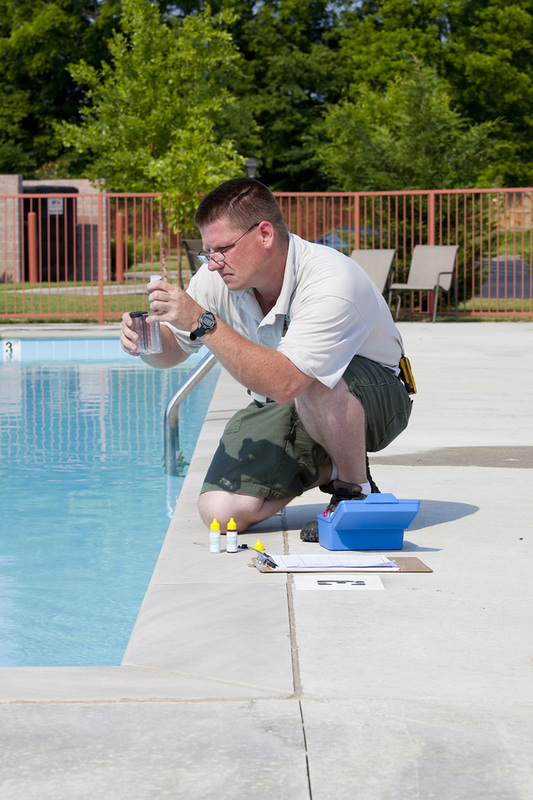easy chlorine chemicals
Are you looking for the right type of chemicals to add to your pool? Elkhart Pools knows that your main goal is to keep your family and customers safe. That’s where chlorine chemicals come in. Chlorine chemicals is a line of professional cleaners for your pool that are known to be effective and easy to use. The best part about chlorine chemicals is that they sanitize, shock, and safeguard your pool with no worries after the fact. Elkhart Pools can help you choose the right pool chemicals that are right for your situation.
|
|
Swimming pools need some chlorine in order to be a safe environment for swimming. Chlorine kills bacteria and other microbes that might otherwise live in the pool water. Without chlorine, outdoor swimming pools quickly become overgrown with slimy green algae. Combinations of pool chemicals are frequently marketed under the name “chlorine”, but they actually contain many different chemicals which your pool needs. Pure chlorine is a yellowish green gas which causes irritation to the eyes and respiratory passages; the solutions and tablets that you use to treat your pool water actually contain chlorine and many other ingredients. The active ingredients in many commercially available pool chemical tablets are Trichloro-S-Triazinetrione and Dichloro-S-Triazinetrione. The price of pool tablets often depends on the concentration of these active ingredients. Dichloro-S-Triazinetrione is also sometimes sold in granular form. If you use the granular pool chemical products, you must dissolve the granules in a bucket of water before adding the solution to your pool water.
Cynauric acid (CYA) is another ingredient in most chlorine products. It prevents chlorine from being destroyed immediately upon exposure to sunlight, but it also reduces the effectiveness of the chlorine if the ratio of CYA to chlorine is too high. That is why it is important to test the CYA levels in your pool regularly, using test strips, to ensure that the CYA levels are not greater than forty parts per million. Some people use calcium hypochlorite powder or sodium hypochlorite solution instead of stabilized chlorine tablets, which contain CYA. If you use tablets, you can just put them in an automatic chemical feeder in your pool, and they will release the appropriate amount of pool chemicals. You usually need to replace the chemical tablets once per week. Do not put chlorine tablets directly into the pool water or the skimmer basket. This will damage your pool’s pump and filter.
In addition to chlorine tablets, pools require another type of weekly chemical treatment. This is an inorganic chlorine solution, often commercially sold as pool shock treatment. Shocking your pool once per week will prevent unpleasant smells in your pool water and will prevent skin irritation in swimmers. The day after you shock your pool, you should also give it a dose of algaecide. For the chemical treatments of your pool to be most effective, the pool water should have a pH level of about 7.2. You can also buy test strips to test the pH of the water in your pool.
Cynauric acid (CYA) is another ingredient in most chlorine products. It prevents chlorine from being destroyed immediately upon exposure to sunlight, but it also reduces the effectiveness of the chlorine if the ratio of CYA to chlorine is too high. That is why it is important to test the CYA levels in your pool regularly, using test strips, to ensure that the CYA levels are not greater than forty parts per million. Some people use calcium hypochlorite powder or sodium hypochlorite solution instead of stabilized chlorine tablets, which contain CYA. If you use tablets, you can just put them in an automatic chemical feeder in your pool, and they will release the appropriate amount of pool chemicals. You usually need to replace the chemical tablets once per week. Do not put chlorine tablets directly into the pool water or the skimmer basket. This will damage your pool’s pump and filter.
In addition to chlorine tablets, pools require another type of weekly chemical treatment. This is an inorganic chlorine solution, often commercially sold as pool shock treatment. Shocking your pool once per week will prevent unpleasant smells in your pool water and will prevent skin irritation in swimmers. The day after you shock your pool, you should also give it a dose of algaecide. For the chemical treatments of your pool to be most effective, the pool water should have a pH level of about 7.2. You can also buy test strips to test the pH of the water in your pool.


